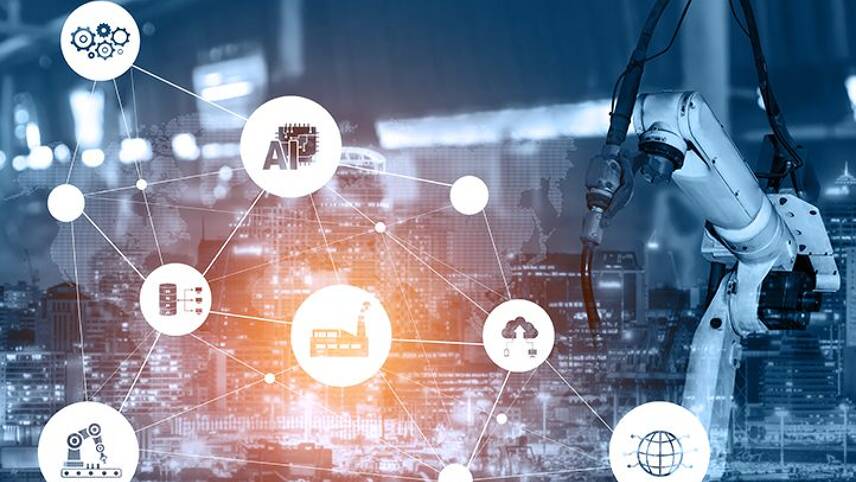Register for free and continue reading
Join our growing army of changemakers and get unlimited access to our premium content

Achieving net-zero emissions by 2050 remains feasible, costing less than 1% of GDP.
Positive talk is being replaced by positive action.
Industry leaders committed their companies to delivering a sustainable future in the year of COP and 2022 will be the most crucial year of delivery with a new industrial generation. Information management and industrial software will empower industries to deliver essential goods and services, safer and more sustainably than ever before.
Across the world, industries are using data, cloud and AI to engineer faster, optimise operations and accelerate profitability.
The UN declared the 2020s as the decade of climate action. Without immediate effort at scale, the goal of the Paris Agreement to limit global heating to 1.5°C wouldn’t be met. Now that COP26 has been and gone, the private sector has a role to play and can drive the necessary change.
During the covid pandemic, greenhouse gas emissions (GHGs) in the UK dropped nearly 11% in 2020, the largest reduction in annual emissions since World War II. Globally, that figure is about 6.4% or 2.3 billion tons – or, looked at another way, approximately double Japan’s yearly emissions. These numbers are stark, but they are not sustainable while living non-covid lives. However, people had more time to think about how we treat the planet, and more importantly how they can change their behaviour in order to preserve it.
The good news is the software exists to reach net-zero – and it is affordable and accessible.
The World Economic Forum projected that Fourth Industrial Revolution (4IR) technologies such as artificial intelligence (AI), machine learning, cloud computing, biotechnology and the industrial internet of things (IIoT) can help achieve 70% of the United Nations’ Sustainable Development Goals over the next decade. For many businesses, it will be about embracing technology and fully benefitting from digitalisation.
Digitalisation enables businesses to embed sustainability metrics into their industrial systems and optimise production outcomes to produce the greenest scenario at the lowest cost. High-fidelity industrial data can be captured using IIoT, while operational processes can be run off the cloud to enable remote collaboration. Overlaying AI models across these digital representations of the enterprise can then help determine where sustainability adjustments can yield the greatest impact.
We can see digital transformation in action. Consumer goods and industrial chemicals leader Henkel realised supply chain resource efficiency, slashed filling line waste and reduced energy consumption by up to 16% in 2020 by introducing manufacturing execution systems, digital solutions that help track activities along the value chain from raw materials to finished goods. Henkel has used digital analytics to unlock annual energy cost savings worth an incremental €8 million in 2020, or more than €37m in aggregate terms since onboarding the solution. Energy consumption, measured in kilowatt-hours (kWh/t) was reduced by 16% in 2020 against a business-as-usual operation.
Companies should not be afraid to be bold when it comes to implementing their sustainability goals. Commitments should drive inspiration and innovation within their organisations, and crucially should involve their supply chain too. Larger companies have a duty to support suppliers to reduce their impact on the environment and collaboration is key. Aligning Scope 3 emissions and sharing best practices will achieve the common goal of reducing our CO2 footprints.
With the private sector accounting for 75% of global GDP, businesses have a responsibility to work alongside governments and policymakers in shaping this sustainable future. As well as being more sustainable, an enterprise supported by a digital data backbone is more agile, innovative, and resilient.
There is a huge opportunity for us to transform. The climate emergency has accelerated, and the planet has witnessed unprecedented disruption. Now sustainability is front of mind for global growth and innovation. Proactively embedding data intelligence and predicative analytics the entire way through the value chain will help us meet the challenges ahead and bring about a new decade of sustainability. Welcome to the age of performance.
Lisa Wee is VP of Sustainability at AVEVA


